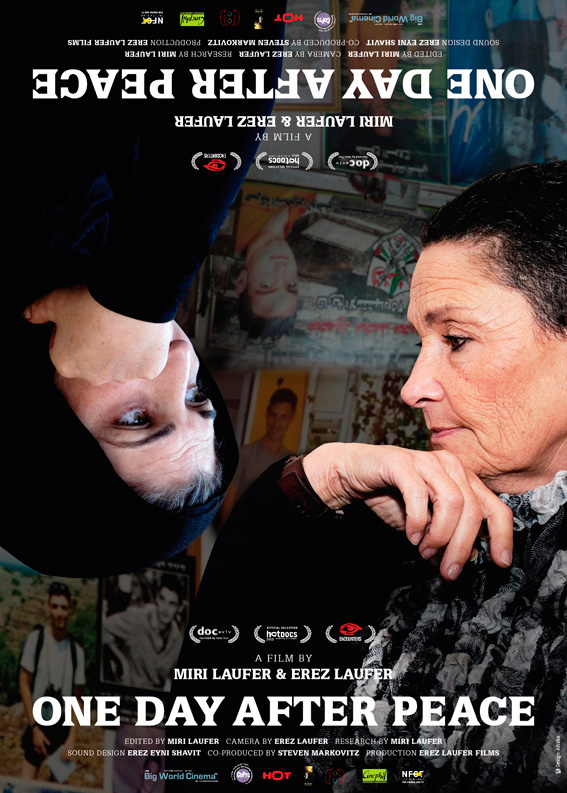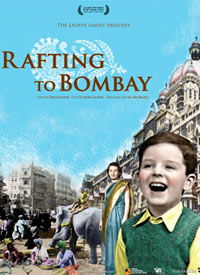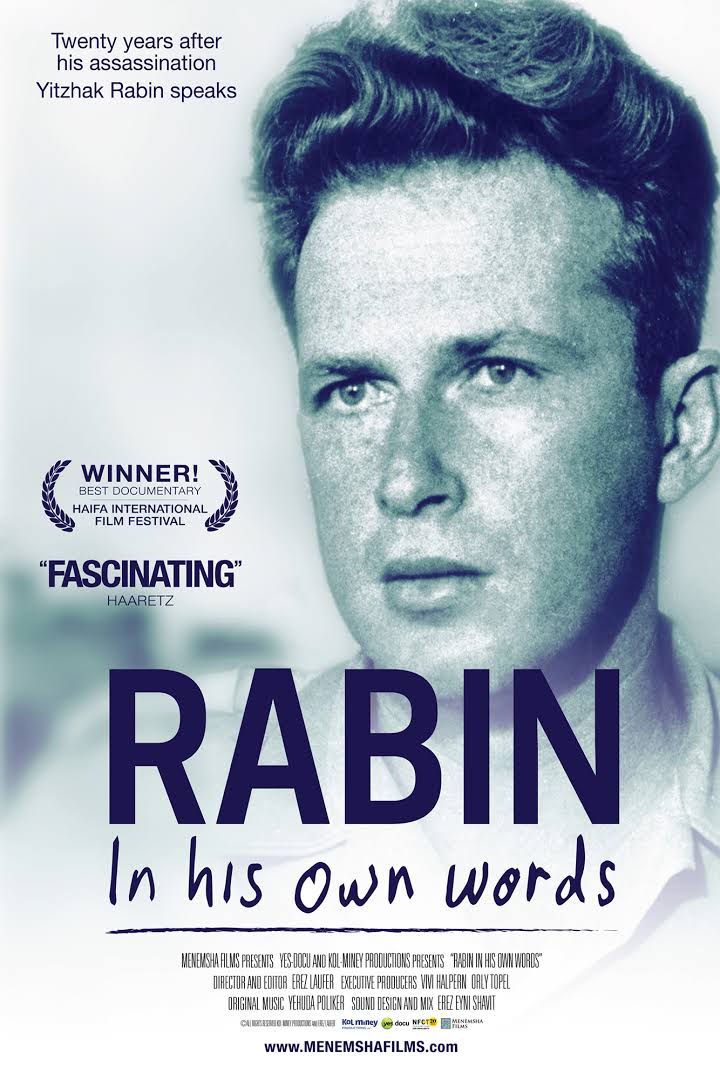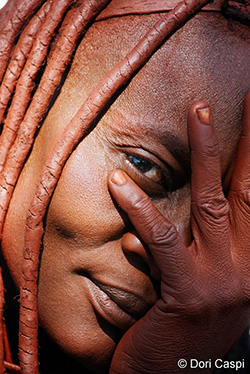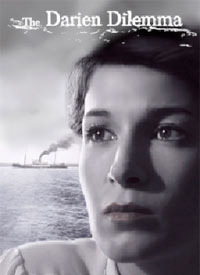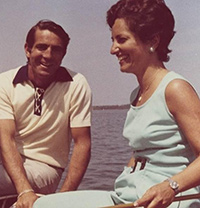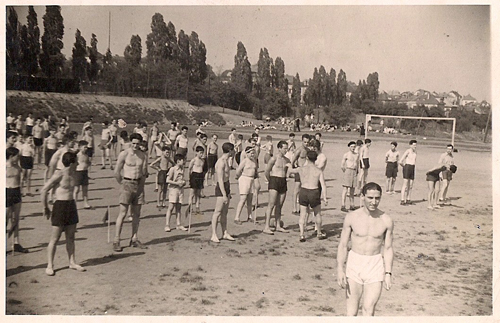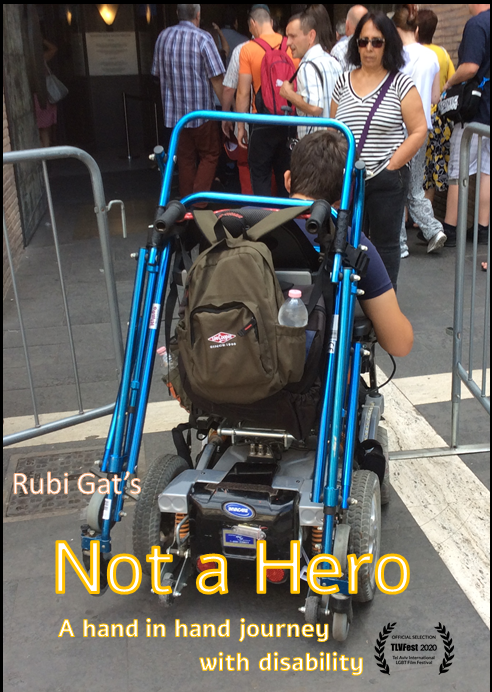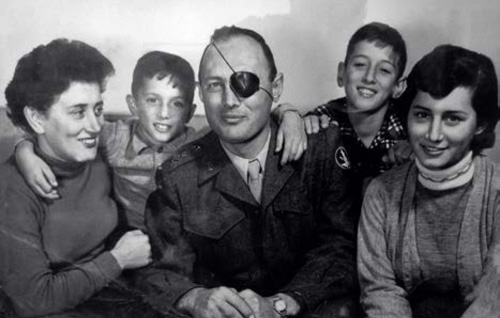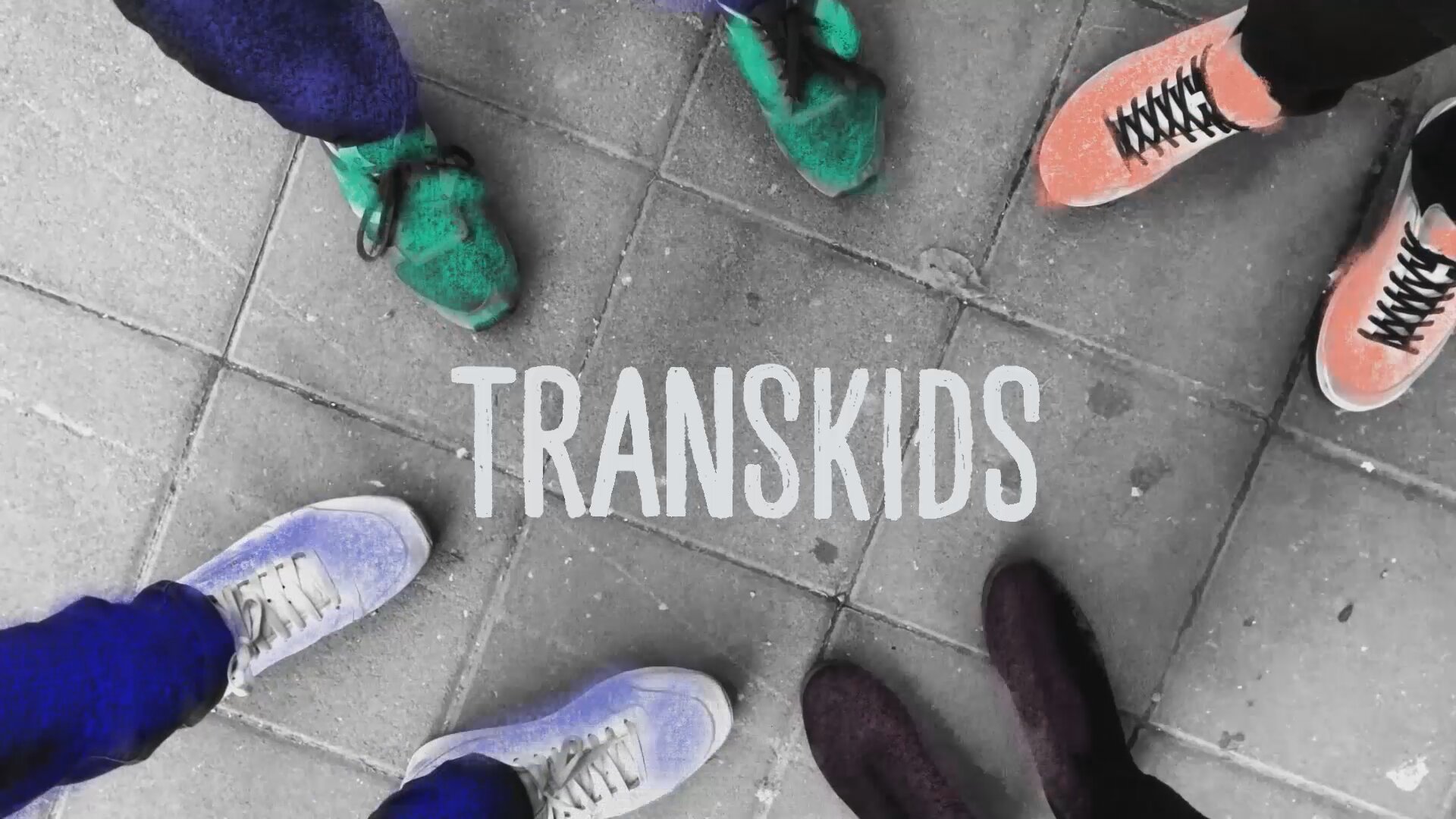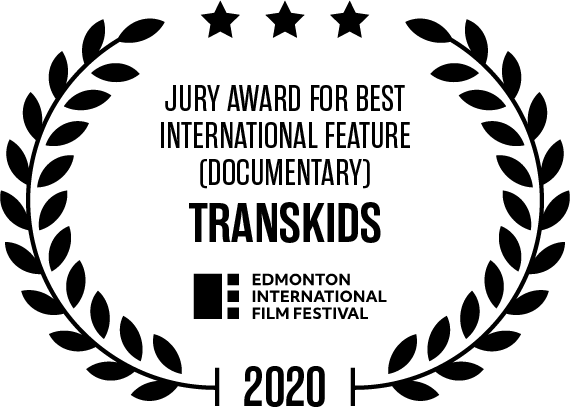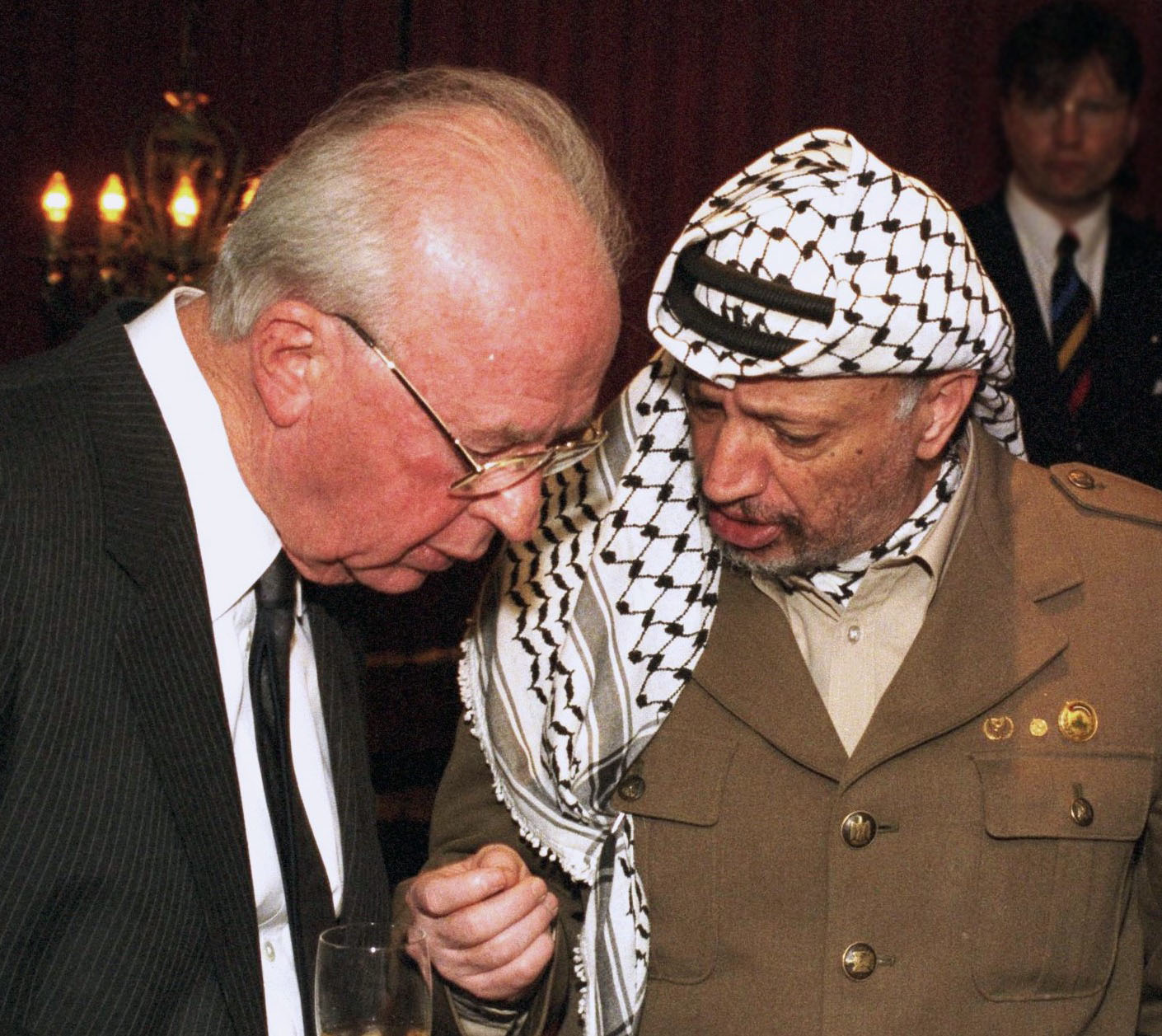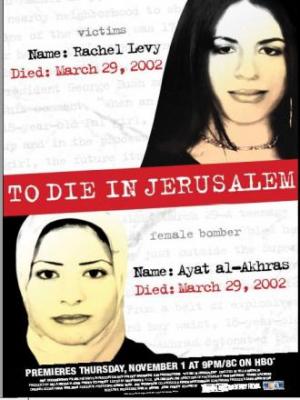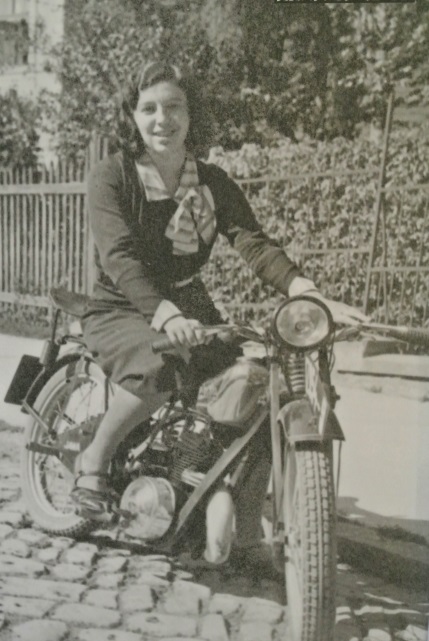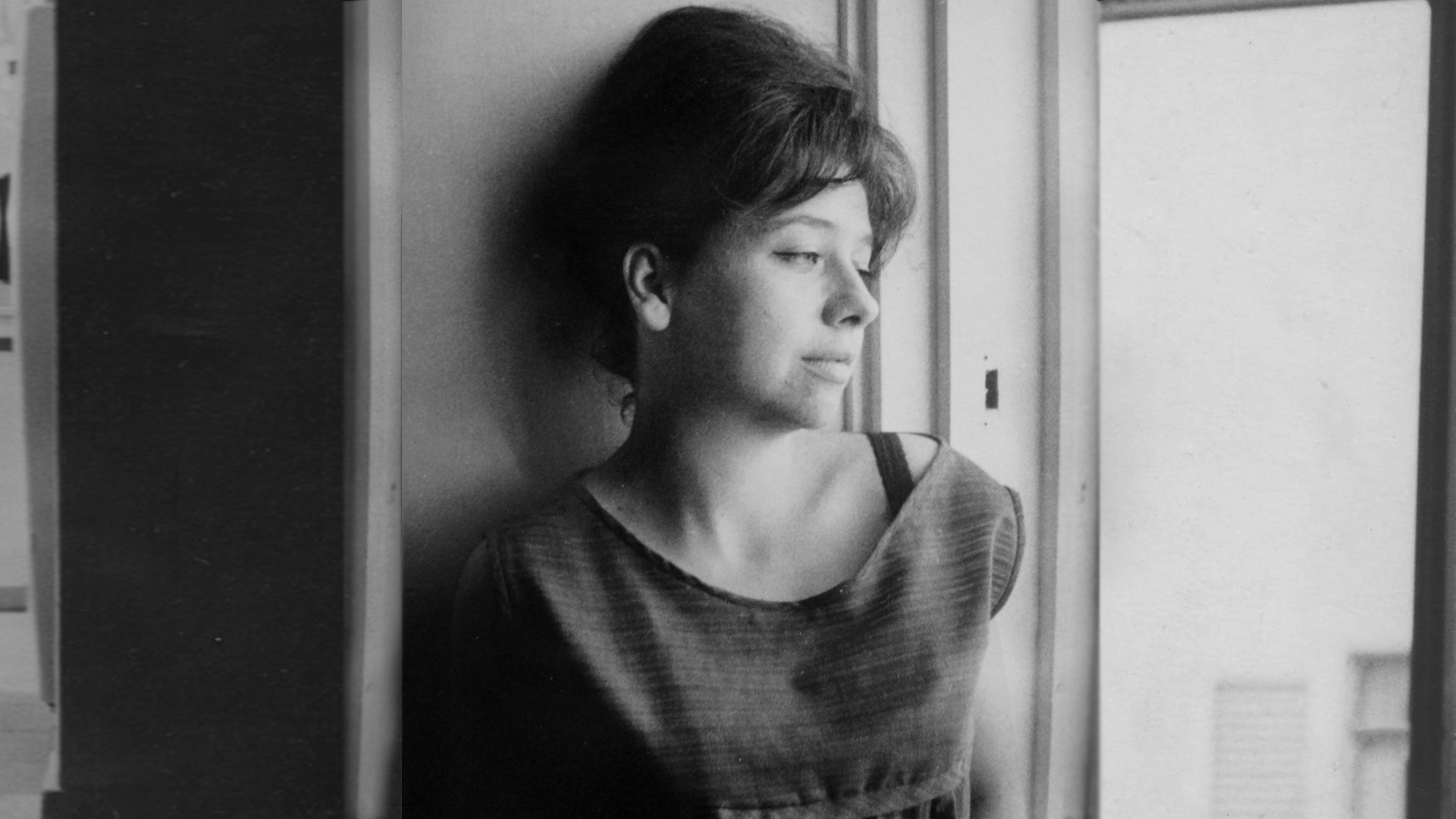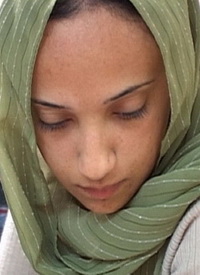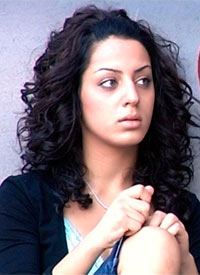Can the means used to resolve the conflict in South Africa be applied to the Palestinian-Israeli conflict? As someone who experienced both conflicts firsthand, Robi Damelin wonders about this. Born in South Africa during the apartheid era, she later lost her son, who was serving with the Israeli Army reserve in the Occupied Territories. At first she attempted to initiate a dialogue with the Palestinian who killed her child. When her overtures were rejected, she embarked on a journey back to South Africa to learn more about the country's Truth and Reconciliation Committee's efforts in overcoming years of enmity. Robi's thought-provoking journey leads from a place of deep personal pain to a belief that a better future is possible.
While filming his father revisiting his childhood city of Mumbai, India, Israeli director Erez Laufer finds himself caught in the worst terror attack in the history of the city. As the drama of the terrorist takeover of Chabad House in Mumbai unfolds, the Laufer family recounts how they found refuge there in the 1940s after fleeing the Nazis. Past and present collide as the family history is echoed in a contemporary war, and a little-known story emerges of the Jewish refugees who found a safe haven in Mumbai during World War II.
Through a combination of rare archive footage, home movies and private letters, his personal and professional dramas unfold before the viewer's eyes - from his childhood as the son of a labor leader before the founding of the state, through a change of viewpoint that turned him from a farmer into a soldier who stood at some of the most critical junctures in Israeli history, Commander of Israel Army during Six Day War, through a brilliant diplomatic career as Israeli ambassador to the United States and his entry into the Israeli political arena, through his later years as Prime Minister he made moves for Peace that enraged a large portion of the public, until the horrific moment when his political career and life were suddenly brought to an end.
Cry of the Owl (Himba) is a film depicting the vanishing world of the Himba, an ethnic group in the north west corner of Namibia, one of the most desolated regions of Africa. The Himba are of the last ethnic groups trying to maintain a traditional way of life. Winds of change, progress and modernism coupled with the real menace of AIDS, threaten to annihilate the ways of the Himba. The filmmakers get the rare opportunity of an intimate and personal look into the day-to-day lives of one family. The Himba people open their hearts and huts with the film makers, sharing their feelings, thoughts, desires and fears.
The film was shot 12 years ago, along 18 months. Because of the fast changes occurred in that area, became a rare and astonishingly intimate "last chance to see" portrait, of the Himba people. A must see for Africa studies, Women studies, AIDS, Social and Anthropological studies.
A father and his filmmaker son Erez Laufer explore the untold story of 1000 Jews from Vienna stranded on the frozen Danube river in the winter of 1941 as they await the life or death decision of their rescue by Ruth Klieger and other Mossad agents who control their fate.
Blurring the lines between documentary and fiction, reality and obsession, the Darien Dilemma is a story about a son's homage to his father’s search to understand a woman’s life and death decision and the history that connects them all.
The final result, the never-before-told story of Mossad agent Ruth Klieger, will surprise even those who think they that have seen "Holocaust Films" from every possible angle.
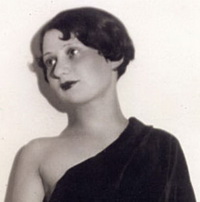
We recommend this film for special screenings on International Holocaust Memorial Day (Jan. 27) and HaShoah Day (Apr. 18).
Between her date of birth, on the 2nd of July 1901, and her deportation to Auschwitz, on the 18th of July 1943, in a wagon train leaving from Drancy, Odette Bernstein’s life left few traces, except those found in the administrative archives. This young and independent woman, from a well-off family of Neuilly-sur-Seine, was the filmmaker’s great aunt. Before World War II, she created her own hatmaking business, and changed name at the same time, becoming Fanny Berger.
“With the precision of a forensic scientist, filmmaker Catherine Bernstein researches the life and the death of her great aunt Fanny Berger, a successful fashion designer in Paris who was ultimately deported to Auschwitz. This highly personal documentary sheds light on Vichy France’s insidious collaboration with the Nazis”
Velvel, Ranni’s father, was a poor orphan, who married Raya Strauss and began working in the family owned factory (which started as a small dairy farm and became one of the biggest food conglomerates in Israel). They divorced when Ranni was 10, and for him, his father remained this strict meticulous withdrawn man who tore the family apart. 8mm reels, discovered after his death arouse questiones that lead Ranni to embark on a personal journey between his parents’ very different worlds in an attempt to better understand his father and the complexities of family loyalty, trying to overcome years of alienation. Looking at his family from behind the camera, he is reshaping his memories.
It might be that in Auschwitz, for the first time in his life, Fredy Hirsch didn't experience Homophobia. He had a lover, he was out and people loved him for all the good he did. When he arrived in Auschwitz, Fredy did not succumb to despair. He persuaded Mengele to set up a daycare center for children and youth and granted some 600 children their final moments of happiness. Together with members of the underground in Auschwitz, he planned a revolt that never came to pass, following his death, which remains a mystery, and which this film attempts to reveal. The story of Fredy Hirsch is another link in the history of the gay community.
Yam doesn't like when people tell him no. No, you can't act on stage, no, you can't fly with your family, no, you can't go out with your friends for a beer. Especially not if the reason is his wheelchair.
But when they told him he couldn't be drafted into the army, he set out on the battle of his life.
Not a Hero is a hand in hand journey with a disability.
"Moshe Dayan was radioactive," says his grandson, Sa'ar, as he tries to explain how throughout Dayan's life and decades after his death, his family still struggles with the large shadow cast by one of the most interesting and enigmatic characters in Israel's history. The series follows 5 generations of the Dayan Family – "The Israeli Kennedy's" – whose story tells also that of the State of Israel; starting at the beginning of the 20th century, its rise following the 6-days war, its breakdown after the Yom Kippur war and complete falling apart after the murder of Prime Minister Yitzhak Rabin. One family with an overdose of talent, depression and madness, sons and daughters – the military personal, the politicians, the poets, the directors, the writers, the rock stars and others who couldn't stand the toll of fame and relations – are part of the critical milestones in the life of Israel, and tell its story in an intimate, scandalous and fascinating manner for the past 100 years.
Created and Directed by: Anat Goren
Four Israeli teenagers undergo an irreversible life-altering process.
Four Israeli families must grapple with the unsettling process their child goes through during the already brutal enough teenage years; each in its one way.
Four years of intimate and raw documenting paint an emotional, dramatic, and eye-opening picture at the heart of which are fundamental questions: what does it mean to be born in a body that is misaligned with your gender? How would we, as parents, react when the child we have raised turns out to be a different person to the one we thought they were? And is our love for our children truly unconditional?
In a long, unprecedented documentary journey, the director chronicles the physical, emotional and social ups and downs in the foursome and their families’ lives – Israeli teens who, despite the hefty price, are no longer afraid of being themselves.
Best Documentary Jury Prize at Edmonton International Film Festival
In 1992, with Israeli-Palestinian relations at an all-time low and any communication punishable with jail time, a small group of Israelis and Palestinians gathered in Oslo – secretly and against the law. Although the meetings that came to be known as The Oslo Accords changed the Middle East forever, they were never officially sanctioned and were chronicled only by the negotiators' diaries.
Ever since 17-year-old Rachel Levy, an Israeli, was killed in Jerusalem by a Palestinian suicide bomber, her mother Abigail has found hardly a moment's peace. Levy's killer was Ayat al-Akhras, also 17, a schoolgirl from a Palestinian refugee camp several miles away. The two young women looked unbelievably alike. TO DIE IN JERUSALEM unabashedly explores the Palestinian-Israeli conflict through the personal loss of two families. The film's most revealing moment is in an emotionally charged meeting between the mothers of the girls, presenting the most current reflection of the conflict as seen thru their eyes.
A new Documentary "Return to the Burning House" tell the amazing story of of a remarkable Israeli heroine HAVIVA RIECK during WWII. She parachuted into Nazi occupied Slovakia in order to save Jews and American and British pilots and was murdered by the Nazis.
She came from poor social context and became active in the Zionist movement. She was among the few women of the pre-war era rode a motorcycle. She escaped the Nazis to Palestine she parcipated in building kibbutz Maanit. Yet she became active in the movement (Palmach) to end the British occupation of Palestine. In spite of that she joined the British SOE units to help persecuted Jews. She was dispatched to Slovakia during the Slovak National Uprising she helped Jews and saved British and US pilots. After the Uprising she was arrested and executed in Kremnička by the Nazis. To remain in Palestine meant a great hope to survive to live; yet to parchute into Slovakia meant risking one’s life. Yet she did not have second thoughts.
Two poets, father and daughter, in a dangerous game of words. The mysterious life and death of Tirza Atar (1941-1977) - the daughter of poet Nathan Alterman, one of the all-time paragons of Israeli and Jewish culture. Atar composed hundreds of poems and song lyrics that penetrated the hearts of large audiences, wrote popular children’s books and translated plays staged in theaters. Nevertheless, her fragile, beauteous image and her short, turbulent life remain shrouded in mystery, many years after her tragic death at the age of thirty-six. The film fuses the fascinating parts of the life and work of this slight woman of prodigious talent, a kind of local princess, whose entire being and output were enmeshed in her complicated and charged relationship with her father, a national poet.
'A Badal deal marriage' usually means when a brother and sister from one family marry a sister and brother from another family - interlocking the two couples for ever. Divorce on the part of one couple will immediately lead to the divorce of the other part of the deal. The film follows a family during the process of putting such a deal together. It portrays the lives of Palestinian women living within Israel.
Six Israeli women give a personal account about their life in the Israeli Army, in the Occupied Territories. A female point of view on the drama of an unending war, on the moral challenges the soldiers faced at the encounter with the Palestinian population. The women look back critically at the way they handled the power that was placed in their hands at the young age of eighteen. Questions that were not dealt with during the service are raised today with great pain.
Angelina/Duah, the first Druze woman to attempt significant steps in the Israeli fashion world, finds herself in the middle of a complicated conflict in which the tradition and values of her society clash with her bold efforts to choose her own way in life. Duah Fares, a young woman from the Druze village of Sagur in the Galilee, was one of the 12 finalists in the beauty pageant for Israeli-Arab women - 'Lady Kul el-Arab.' While preparing for the pageant, a special relationship develops between Duah and fashion designer Jack Yaakub. Together they go to Tel Aviv to register Duah for the Miss Israel beauty pageant. Duah breezes through the preliminary selections for the contest and changes her name to Angelina.
Lady Kul el-Arab which sets out as a glamorous film about a beauty pageant, turns into a moving story of a family caught between cultures. In her fifth film, director Ibtisam Mara'ana succeeds in delicately drawing the dramatic and touching portrait of a young woman who finds herself at the heart of a struggle which fascinates the whole country.
About
Docs For Education is devoted to distributing high quality, creative documentaries suitable for educational purposes.

I was born in 1935 in Poland. During WWII, my mother and I escaped from the Nazis in a journey that ended in Bombay, India. It was during research for a documentary film about my personal life that I became familiar with another fascinating and un-familiar story, that of The Darien, which became the subject of my first script.
The film "The Darien Dilemma" was directed by my son, Erez Laufer, and edited by my daughter, Miri Laufer. The three of us continued our collaboration in "Rafting to Bombay", the film which tells my own personal story.
It was during the creation of these two deeply personal documentary films with my son that I acknowledged the instructive value of this media. Receiving enthusiastic responses from universities, schools, public libraries and other institutions encouraged us to create a small selection of unique, insightful documentary films with educational value.
— Nahum Laufer
Erez Laufer is a well known established film maker in the documentary world. He is the editor of two highly appreciated Oscar nominees, "The War Room" (1993) and "My Country, My Country" (2006).
Erez Laufer has completed a new film, "Rabin In His Own Words," which won Best Documentary at the Haifa International Film Festival. It will be released in theatres by the end of 2015.
Contact
For more information please contact Nahum Laufer.
Email: laufern@netvision.net.il
Fax: 972-3-5291726
Mail: Shlomo Hamelech 93 #5, Tel-Aviv 6451228
